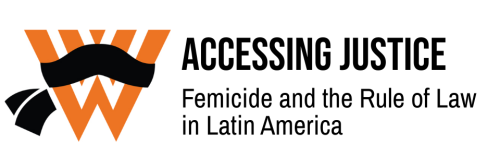
A blog of the Middle East Women's Initiative
This year and due to strict lockdowns imposed by many countries to control the COVID-19 pandemic and the ensuing economic distress on many families, the MENA region has seen an unfortunate increase in gender-based violence, specifically domestic violence against women.
According to UN Women, one in three women globally have experienced violence, either physical or sexual, at some point in their lives. In most cases, this violence is perpetrated by their intimate partners. In the Arab states of the Middle East and North Africa region, 37 percent of women have "experienced some form of violence in their lifetime." In Israel, various national surveys revealed that more than 140,000 women are victims of sexual harassment annually. In Turkey, around 38 percent of women have experienced violence, and in Iran, according to a 2017 study, referenced by Human Rights Watch, 32 percent women in urban areas and 63 percent in rural areas have experienced some form of domestic violence. Unfortunately, many cases go unreported, so these figures likely underrepresent the extent as well as the depth of this problem in the region.
This year and due to strict lockdowns imposed by many countries to control the COVID-19 pandemic and the ensuing economic distress on many families, the MENA region has seen an unfortunate increase in gender-based violence, specifically domestic violence against women. COVID-19 has created a fertile environment for domestic abuse, exposing women to unsafe situations, where they are forced to cohabitate with their abusers, be it a spouse or other male member of the family.
That is why commemorating the United Nations 16 days of Activism Against Gender-Based Violence this year is more important than ever. It is an harsh reminder of how widespread this cancer is across the region but also an opportunity to highlight the tireless work of human rights and women’s rights activists, who have been at the forefront of efforts to protect and prevent gender-based violence. Accordingly, the Middle East Program's blog Enheduanna: Voices of Women from MENA, presents contributions from women activists and scholars from the region about not only the challenges in their countries but also the greatest hopes. Noa Balf reflects on femicide in Israel; Radwa Elsaman highlights the importance of legal representation by discussing discrimination against women in the Egyptian Judiciary; Lilia Labidi analyzes the role of social media in violence against women in Tunisia; Hanaa Edwar reflects on political instability in Iraq and how that has affected women; and Rana Husseini discusses the rising social and legal challenges to honor killings in Jordan. It is the work these women do that keep the hope alive and gives drive to more people, both women and men to fight this pandemic of violence.
This blog series is part of the Wilson Center series exploring the many facets of gender-based violence around the world, in parallel with the 16 Days of Activism against Gender-Based Violence that runs from November 25 – December 10, 2020.

Author


Middle East Program
The Wilson Center’s Middle East Program serves as a crucial resource for the policymaking community and beyond, providing analyses and research that helps inform US foreign policymaking, stimulates public debate, and expands knowledge about issues in the wider Middle East and North Africa (MENA) region. Read more


Middle East Women's Initiative
The Middle East Women's Initiative (MEWI) promotes the empowerment of women in the region through an open and inclusive dialogue with women leaders from the Middle East and continuous research. Read more

Explore More in Enheduanna
Browse Enheduanna
Women are the Catalysts for Change in Lebanon

How Education Can Empower Young Women in MENA


